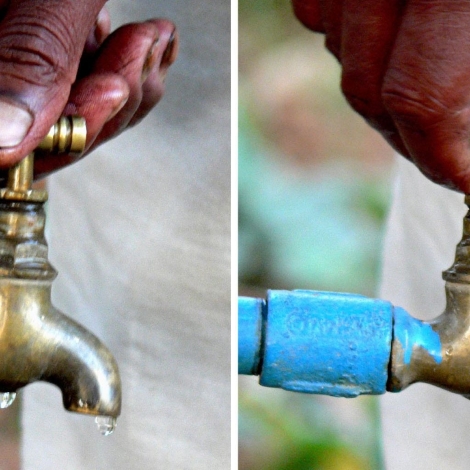Water management is often discussed in terms of access – who doesn’t have it and how much it will cost to provide it. But what’s missing from the conversation is the carbon footprint of water provision. Both issues might have the same solution, however, in carbon credits. Global water management is responsible for up to 10% of greenhouse gases, meaning global water security is eligible for funding through voluntary carbon markets.
“Dedicated climate financing from the private sector provides an opportunity to fund reliable, sustainable, and affordable water supply systems,” Evan Thomas, Director of the Mortenson Center in Global Engineering and Resilience at the University of Colorado Boulder, and colleagues write in the Wall Street Journal Sustainable Business.
Dr. Thomas, in collaboration with 10 foundations and other institutions, argue the case for paying for water security using carbon credits and other creative financing models in a report published this month, Decarbonizing Water: Applying the Voluntary Carbon Market Toward Global Water Security.
“We broadly estimate that across the sub-sectors of reduced grid emissions, wastewater treatment upgrades, coastal blue carbon, rural drinking water treatment, latrine value chain upgrades, and watershed nutrient reduction and irrigation, the total global potential for carbon credits generated from water projects is more than 1.6 billion tCO2e per year,” according to the report. (tCO2e refers to total carbon dioxide equivalent).
If the average carbon credit has a price of (USD) $10, carbon credit buyers could potentially invest (USD) $160 billion in water security improvements over the next decade. If only the voluntary market was that flush. Instead, carbon credits are a (USD) $2 billion per year market, meaning water security may achieve only a small percentage of its financing potential, the report states.
The report offers six recommendations to the global water sector to make the most of the available financing.
- Stakeholders should promote carbon credits as a financing option for water programs.
- Developers of the water sector should understand that carbon credits could subsidize their programs, even if they may not fully fund the programs.
- National governments and carbon market policymakers should clarify additionality—the reduction of emissions—in the water sector.
- Standards-making institutions should encourage innovation.
- Investment in digital monitoring, reporting, and verification technologies may increase the credibility and scale of water projects.
- Deeper and more localized analyses of the potential for carbon credit financing could support the development of more projects in the water sector.
In short, water insecurity might have an unexpected lifeline in the carbon credit market. For details, please read the paper.

